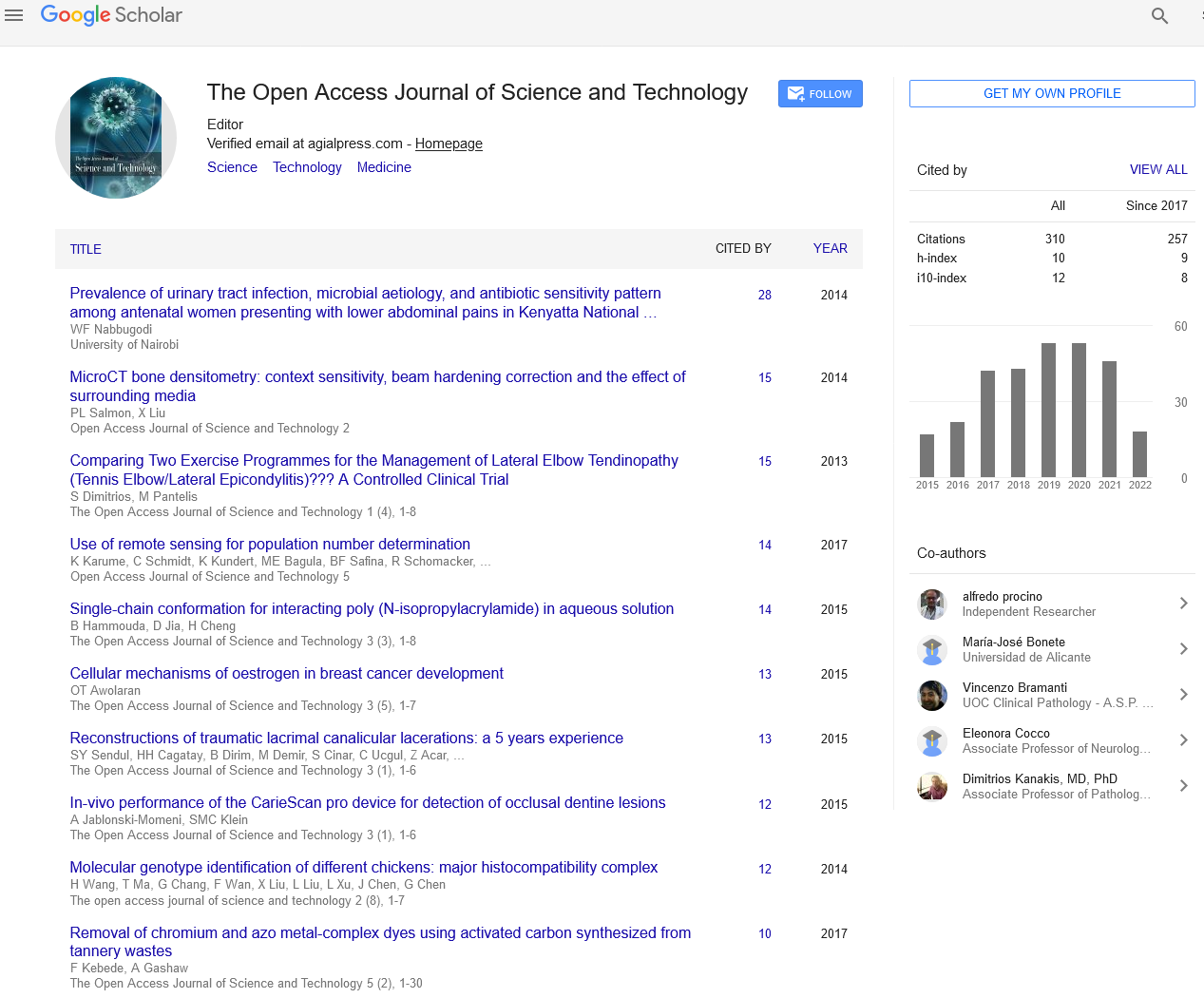The Open Access Journal of Science and Technology
Abstract
Google Scholar citation report
Citations : 409
Indexed In
- Genamics JournalSeek
- Directory of Open Access Journals
- Pollution Abstracts
- Publons
- International committee of medical journals editors (ICMJE)
- Google Scholar
- Chemical Abstract
Postpartum Nutrient Intakes and Beverage Patterns of American Indian Women
Author(s): Teresa A. Marshall, Katherine W. O. Kramer, Brenna C. McMahon, Delores E. Starr, Kathy R. Phipps, John J. Warren, Deborah V. Dawson, and David R. Drake
Objectives: American Indian (AI) children are at risk for chronic diseases associated with marginal early nutrition environments. We describe nutrient intakes and beverage patterns of AI women during the early postnatal period to identify nutritional adequacy and beverage habits. Methods: 24 hour recalls and beverage frequency questionnaires were administered to AI mothers (n = 239) from a Northern Plains Tribal community 1 month postpartum. 24 hour recalls were analyzed using Nutritionist PRO(R) software, and intakes were compared to Estimated Average Requirements (EAR). Results: The percentage of AI women reporting nutrient intakes below the EAR was 97% for vitamin D, 96% for vitamin E, 69% for vitamin A, 55% for vitamin C, 73% for calcium and 79% for magnesium. Median (25th, 75th percentile) beverage intakes reported by beverage consumers were 8.0(4.0, 16.0) oz milk, 8.0(3.4, 16.0) oz 100% juice, 8.0(4.0, 16.0) oz juice drinks, 18.6(7.4, 28.0) oz regular pop, 9.1(4.6, 18.3)oz sports drinks, 12.0(5.1, 22.0)oz sugared flavored water and 48.0(24.0, 96.0) oz water. Conclusions: The low nutrient and high sugared beverage intakes increased risk of chronic malnutrition. The nutritional environment predisposes AI children to chronic diseases including obesity and dental caries through early metabolic programming and later modeling behaviors.
<Share this article

